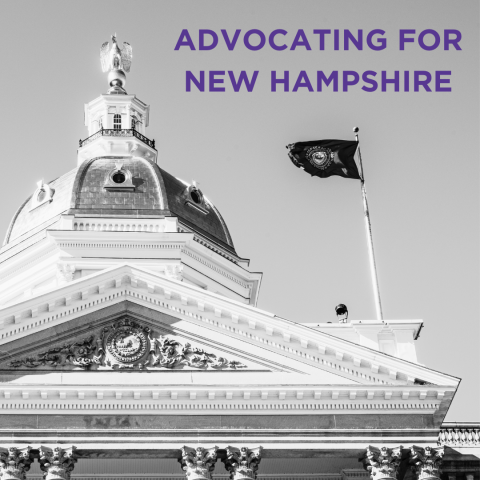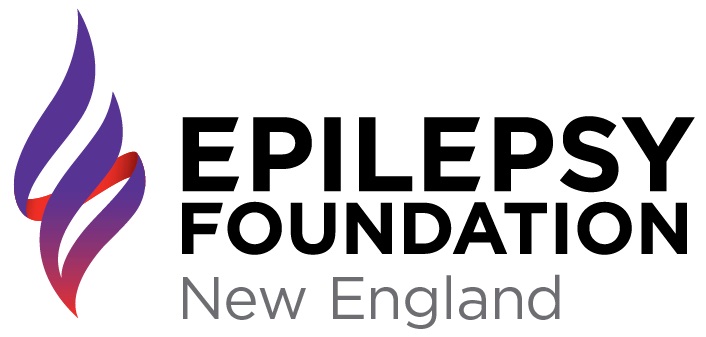Testimony to the Senate Committee on Health and Human Services

IN SUPPORT OF SENATE BILL 17
“Relative to Insurance Cost-Sharing Calculations”
Offered by
Bill Murphy
Director, Advocacy & Public Policy
Epilepsy Foundation New England
Chairman Rochefort, Vice Chairman Avard and Members of the Senate Committee on Health and Human Services:
On behalf of the Epilepsy Foundation New England, and the more than 13,100 individuals living with epilepsy in New Hampshire, we urge you to support Senate Bill 17regarding the application of cost-sharing amounts toward deductibles or out-of-pocket maximums.
Everyone is aware of the rising costs of healthcare and access to medications.
SB17 would ensure that all people with high prescription drug costs have access to needed medications, even if they receive assistance to afford their drugs.
Many people living with chronic disorders, such as epilepsy, rely upon payment assistance programs to help cover the costs of what can often be very expensive medications.
Here at the Epilepsy Foundation, we too have a medication assistance program to help individuals cover the costs of their epilepsy medications. During the pandemic, and since, we have seen an increase in the number of requests and, in turn, have increased the funds allocated to help folks. The need is real; they simply cannot afford their medications. With financial uncertainty facing many of our citizens, placing additional constraints on their ability to pay or to have coverage delayed for their medications is simply wrong.
Issuers have instituted copay accumulator programs because of unfounded concerns that copayment reimbursements by prescription drug manufactures incentivize physicians to prescribe more expensive.
drugs when folks could be taking a generic. However, this is an inappropriate assumption, especially.
in relation to epilepsy. Epilepsy medications are not interchangeable, and treatment of epilepsy is highly individualized. And please keep in mind that not all drugs have a generic version. We feel that this claim is unfounded given that less than 1% of commercial pharmacy claims filled using cost-sharing assistance were for a brand medicine with a generic equivalent.
There is no “one size fits all” treatment option for epilepsy, and the response to medications can be different for each person. In addition, many people with epilepsy, especially those living with rare epilepsy syndromes, are on several meds for their seizures and accompanying co-morbidities. Needing several, high-cost medications can have an unbearable cumulative financial effect for these folks without this assistance.
This bill helps to assure that people can continue to afford needed, lifesaving medications by allowing co-pay assistance to count toward an individual’s out-of-pocket costs, deductibles, and cost-sharing.
The assistance our Foundation, and other programs offer is real – and benefits those folks who most need it. A 2020 study showed that:
- On average, copay assistance lowered patients’ out-of-pocket cost on average by $55/prescription; $55 can make a substantial difference for an individual. And the savings only grow if a person is on more than one medication. For instance, close to 25% of people living with epilepsy are on one or more medications to control their seizures.
- Copay assistance helped those with worse insurance plans, lowering out-of-pocket spending by 44% among patients who were required to pay the most by their insurance company; and
- They noted that accumulator policies shift increased drug costs to patients – while insurers are allowed to double dip.
Contrary to opponents’ claims that not using accumulator adjustors will drive up premiums, studies show that premiums do not go up if this assistance benefits the patient.
Oftentimes, patients do not even know their insurer has an accumulator adjustor policy in place. I have heard of instances where one shows up at the pharmacy only to find out they have an exorbitant co-pay and simply leave without their medications because they cannot afford it…all unexpected to them.
Whether it is called an Out-of-Pocket Protection Program, or as United Healthcare refers to it, the intent is the same for Coupon Adjustment/Benefits Plan Protection Program. And the impact on patients is the same. This would impact everyone differently, but without the protections in SB17 it would often mean higher, unanticipated copays at the pharmacy because they are satisfying their deductible later than they used to, if at all.
Not passing SB17 would translate to higher and unanticipated copays because deductibles would be satisfied later than they had been. This would undermine affordability, adherence to needed medications, and therefore, health outcomes. Patients should not be denied this assistance or punished for relying upon help to cover the costs of their medications. Only the insurance companies will benefit and see a savings….not the patient!
1 in 26 Americans will develop epilepsy at some point in their lifetime. Epilepsy is a medical condition that produces seizures affecting a variety of mental and physical functions.
For most people living with epilepsy, anti-epileptic drugs (AEDs) are the most common and cost-effective treatment for controlling and/or reducing seizures, and they must have meaningful and timely access to physician-directed care and prescribed medications. To change, limit, or deny access to medications could be extremely dangerous.
Senate Bill 17will, rightfully so, allow financial support from manufacturers, and assistance from the Foundation’s own medication assistance program, to count towards an individual’s deductible.
This bill allows peace of mind for many by preventing unpredictable changes to how a health plan calculates a deductible. Such changes in affordability could impact adherence rates. Individuals may abandon medications at the pharmacy counter or adjust their medication regimen by trying to make their refill last longer and jeopardize their health. People living with complex chronic conditions increasingly face a landscape that makes it difficult to afford the medications prescribed by their provider. Especially during these uncertain times, this bill recognizes the need for ensuring that people can afford to get the medications they need. Now is not the time to add yet more barriers.
To date, nineteen states, DC and Puerto Rico have passed legislation that bans harmful accumulator policies. With your continued support we look forward to working together to make New Hampshire d number 20!
Epilepsy Foundation New England urges you to support SB17.
I am happy to answer any questions and can be reached at @email .
Respectfully submitted,
Bill Murphy
Director, Advocacy & Public Policy
Epilepsy Foundation New England
